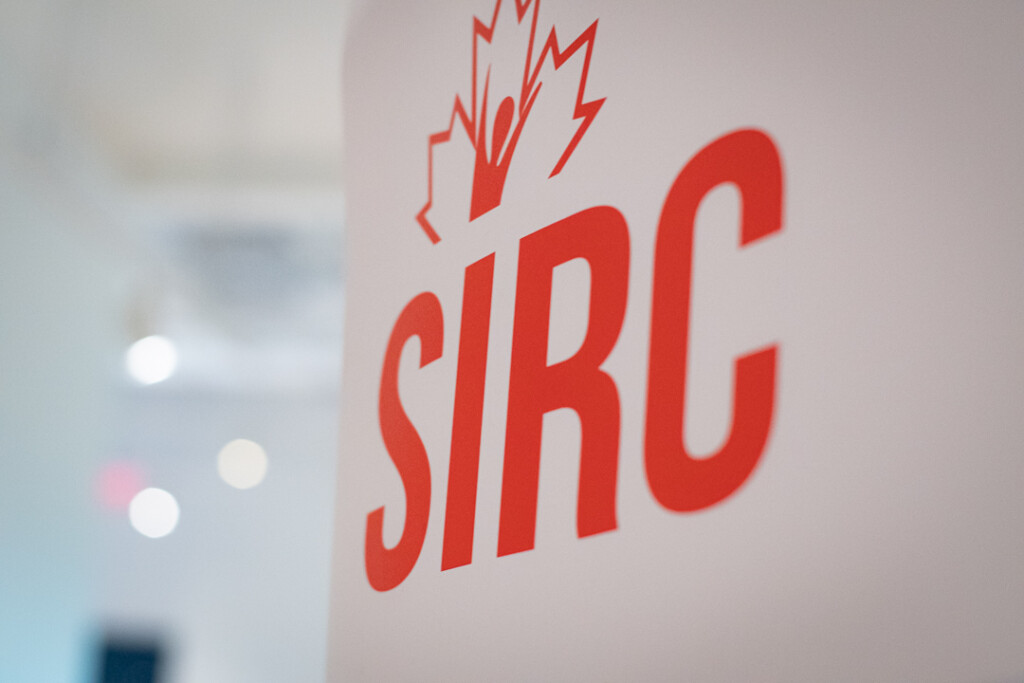Health and Wellbeing
Health and wellbeing is an important contributor participation in sport. Our resources provide key insights on physical health, mental resilience, social wellbeing, and more.
Search Health & Wellbeing Resources
Top 10 resources
- SIRCuit Article: Balancing Psychological Load: New Perspectives on Recovery
- SIRCuit Article: Supporting the Psychological Wellbeing of Athletes: What Can Coaches do?
- SIRC Article: The psychology of recovery among endurance athletes
- SIRCuit Article: The Role of Nutrition in Sport Concussion Recovery
- Game Plan: Wellbeing for Olympic and Paralympic Athletes
- Canadian Centre for Mental Health in Sport
- How air pollution affects human health and sport performance
- SCRI: Men athletes’ self-compassion and masculinity
- Engaging Girls and Women in Sport Mini Series – Part 4: Connecting mind and movement
- SIRC Active Break Video Series

Featured resource
Jordan Sutcliffe, University of Wollongong

Featured resource
Stuart Wilson, Joe Baker, and Nick Wattie

Featured resource
Jamie Bissett, University of Toronto

Featured resource
Quick Facts
How does sport contribute to social wellbeing?
Sport fosters social wellbeing by providing opportunities for individuals to engage with others in a team environment, which promotes communication, cooperation, and respect. Participating in sport helps build a sense of belonging, whether through a local sports club, school team, or community event. It encourages the development of leadership skills, empathy, and the ability to work with diverse groups of people. Sport also strengthens social networks and friendships, providing emotional support and a sense of connection, which are critical for mental health and overall life satisfaction.
How can sport environments help participants' mental health?
Sport environments that prioritize mental health create a foundation for athlete success and overall wellbeing. Coaches, trainers, and sport organizations play a critical role by fostering inclusive, supportive environments where athletes feel comfortable discussing mental health challenges without fear of stigma. By providing access to resources like mental health professionals, educational workshops, and peer support programs, sport organizations can help athletes manage stress, prevent burnout, and develop healthy mental habits. Emphasizing mental health as part of overall performance encourages athletes to view their wellbeing holistically, improving both their mental and physical outcomes.
What is Psychological Skills Training (PST), and how does it benefit athletes?
Psychological Skills Training (PST) is a method used to enhance an athlete’s mental capabilities, helping them manage pressure, focus better, and stay motivated during competition. PST involves techniques like goal setting, imagery (visualization), and positive self-talk, which help athletes improve their mental strength and resilience. These skills are essential in maintaining consistent performance, especially under high-pressure situations. PST not only enhances physical performance but also promotes mental wellbeing, aiding athletes in handling stress, overcoming setbacks, and improving confidence. This training benefits athletes across all levels, from recreational participants to elite competitors.
What is nutritional well-being?
Nutritional well-being refers to the state of health achieved through a balanced and adequate intake of nutrients essential for optimal physical and mental performance. It involves consuming a variety of foods, including fruits, vegetables, whole grains, lean proteins, and healthy fats, to meet the body’s energy and nutrient needs. Proper nutrition supports athletic performance, aids recovery, and helps maintain overall health, reducing the risk of chronic diseases.
How does the outdoor environment impact overall health, particularly in extreme heat or cold?
The outdoor environment can significantly affect overall health, especially during extreme temperatures. In extreme heat, athletes are at higher risk for heat-related illnesses, dehydration, and decreased performance. Conversely, extreme cold can lead to frostbite and hypothermia. It’s essential to adapt to these environmental factors by monitoring weather conditions, staying hydrated, dressing appropriately, and following safety guidelines. For more insights on how to manage activities in varying environmental conditions, visit our Environment page.
Video Resources
How air pollution affects human health and sport performance
- Loughborough University and SIRC
- 2022
11A: The Socializing Together while Running InDEpendently (STRIDE) randomized controlled pilot trial
- University of British Columbia and SIRC
- 2022
Mom’s Got Game! Getting active after childbirth
- SIRC
- 2022
Engaging Girls and Women in Sport Mini Series – Part 1: Getting Girls Back in the Game
- SIRC, Edmonton Tsunami, University of Guelph, and Brams United Soccer Club
- 2021
9B: Appearance-related shame mediates the association b/w body surveillance & attentional focus
- University of Toronto and SIRC
- 2022
Demographic considerations for concussion management
- Brock University and SIRC
- 2023
Knowledge Nuggets
knowledge nuggets
Perfectionism in high performance athletes
Many high-performance athletes scrutinize their own performances and often aim for perfection. A recent study delved into how perfectionistic athletes view success and failure in
Many high-performance athletes scrutinize their own performances and often aim for perfection. A recent study delved into how perfectionistic athletes view success and failure in sports. Through interviews and season-long diaries, researchers found that an athlete’s ability to deal with failure depended on the type of perfectionism they exhibited.
knowledge nuggets
Keto diets for elite endurance athletes
Ketogenic diets are gaining attention in elite endurance sports for their ability to boost fat burning, potentially transforming performance. However, concerns linger about their impact
Ketogenic diets are gaining attention in elite endurance sports for their ability to boost fat burning, potentially transforming performance. However, concerns linger about their impact on glycogen use and high-intensity exercise, with mixed results among athletes.
knowledge nuggets
Disordered eating in elite athletes
Athletes face a heightened susceptibility to disordered eating compared to non-athletes. Social and sport pressures influence disordered eating behaviours among elite athletes. Interviews with 9
Athletes face a heightened susceptibility to disordered eating compared to non-athletes. Social and sport pressures influence disordered eating behaviours among elite athletes. Interviews with 9 male and female athletes reveal insights into the complex interplay between societal norms, athletic demands, and dietary practices.
knowledge nuggets
Sleep quality and sport performance
Elite athletes and coaches view sleep as essential for optimal performance and recovery, but sleep quality is often compromised by various factors. Sleep quality can
Elite athletes and coaches view sleep as essential for optimal performance and recovery, but sleep quality is often compromised by various factors. Sleep quality can affect athletic performance and recovery, with the impact varying based on sport type and individual needs.
knowledge nuggets
Rapid weight loss and kidney damage
Combat sport athletes often use rapid weight loss strategies, also known as weight cutting, before competitions, but these methods can cause harm. Dehydration and extreme
Combat sport athletes often use rapid weight loss strategies, also known as weight cutting, before competitions, but these methods can cause harm. Dehydration and extreme dieting raise the risk of kidney stress and long-term damage.
knowledge nuggets
Music for weightlifting
Training and lifting at gyms are a common part of athlete development, with many athletes listening to music for motivation. A study found that although
Training and lifting at gyms are a common part of athlete development, with many athletes listening to music for motivation. A study found that although preferred warm-up music does increase the volume of lifts and motivation, it does not speed up or change how the lifts feel.
knowledge nuggets
Fluid balance in female athletes
Despite female sex hormones being known to influence thirst and fluid balance, research shows they don’t significantly affect overall water retention during rest or exercise.
Despite female sex hormones being known to influence thirst and fluid balance, research shows they don’t significantly affect overall water retention during rest or exercise. Although progesterone can alter internal body temperature, it does not appear to impact heat dissipation during exercise in women.
knowledge nuggets
Creatine supplementation in athletes
Creatine, a popular supplement among athletes, enhances the body’s natural ATP production, improving performance during high-intensity exercises. It also promotes post-exercise recovery and may aid
Creatine, a popular supplement among athletes, enhances the body’s natural ATP production, improving performance during high-intensity exercises. It also promotes post-exercise recovery and may aid in rehabilitation after injury.
More Health and Wellbeing resources
|
|
|
|
|
|
|
|
|
|
|
|